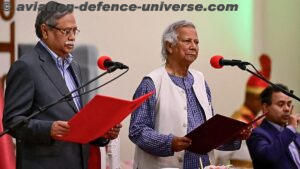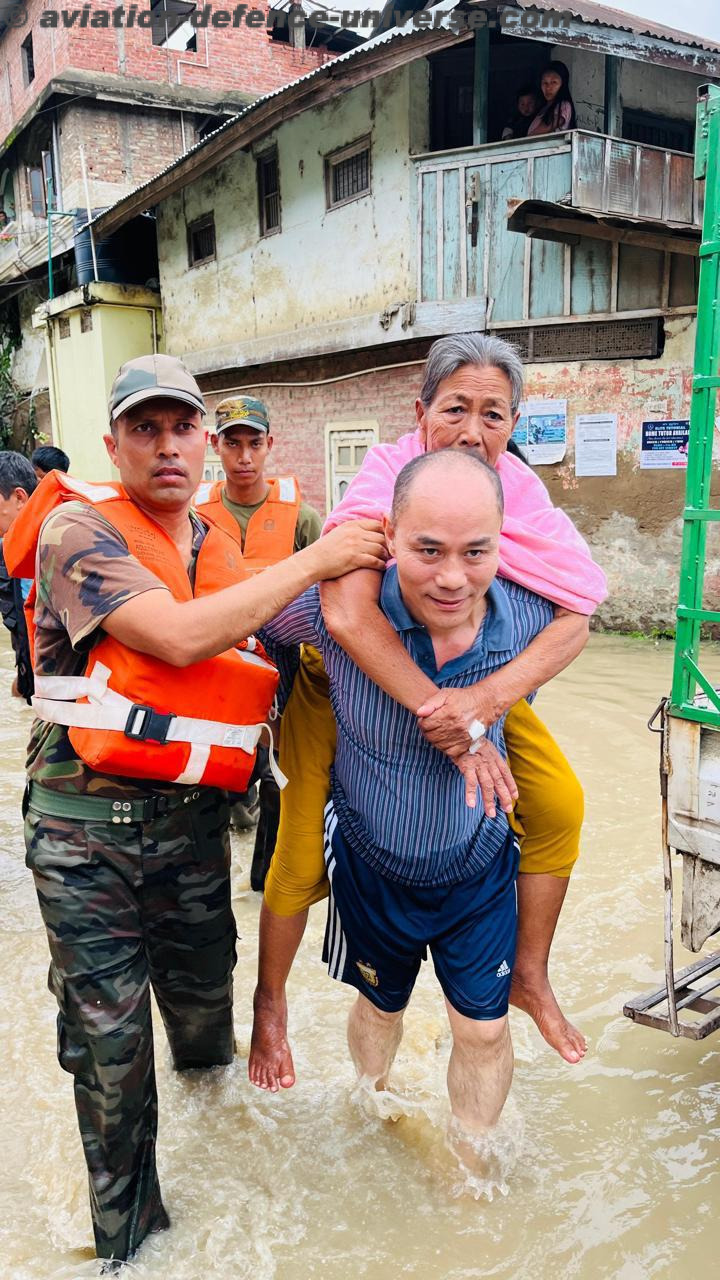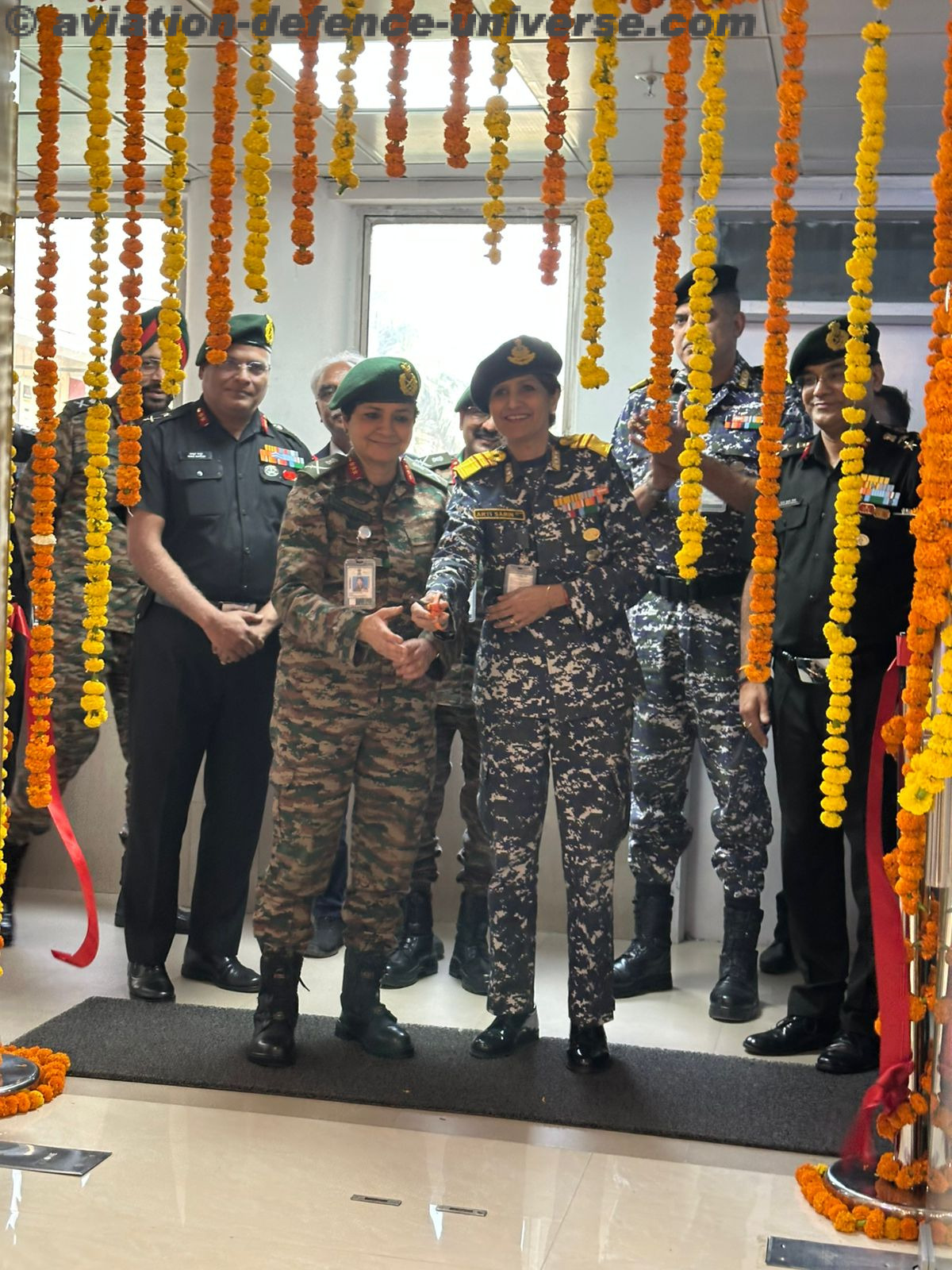By JK Verma
New Delhi. 14 September 2017. Ethnic cleansing hits headlines in the western world media but little realisation is that mass migration of the result of this in the neighbouring nations through porous borders triggers a crisis which might reflect in more than one serious forms. The global media currently has a news peg and Myanmar’s Rohingya Muslims exodus just refuses to become a number two headline.
The current mass exodus of Rohingya Muslims started when Myanmar security forces launched search and cordon operation as a repercussion of the attack by Arakan Rohingya Salvation Army (ARSA) on 30 police posts and one army base on August 25. ARSA terrorists killed more than 12 security personnel in the attack.
In the operation Myanmar security forces killed more than 1000 Rohingyas and burnt about 2500 houses which forced 2.75 Lakh Rohingya Muslims to flee from Rakhine state. There are more than one million Rohingyas in Myanmar and most of them live in Rakhine state.
 There is a longstanding struggle between Rohingya Muslims and majority Buddhists in Myanmar. Buddhists consider Rohingyas as illegal Bengali immigrants and refused to give them any rights and imposed several restrictions on marriage, number of children, employment and even on education. More than 78 percent of Rohingya Muslims are living below poverty line and Rakhine state is one of the most underdeveloped state in the country. The 1982 Citizenship Law had declined citizenship rights to Rohingyas. There is widespread animosity between Rohingya Muslims who are mostly of Sunni sect and people of other religions residing in that area. Muslims of Arakan state (former name of Rakhine state) also tried to merge in East Pakistan in 1947 and again in 1971 they wanted to join Bangladesh.
There is a longstanding struggle between Rohingya Muslims and majority Buddhists in Myanmar. Buddhists consider Rohingyas as illegal Bengali immigrants and refused to give them any rights and imposed several restrictions on marriage, number of children, employment and even on education. More than 78 percent of Rohingya Muslims are living below poverty line and Rakhine state is one of the most underdeveloped state in the country. The 1982 Citizenship Law had declined citizenship rights to Rohingyas. There is widespread animosity between Rohingya Muslims who are mostly of Sunni sect and people of other religions residing in that area. Muslims of Arakan state (former name of Rakhine state) also tried to merge in East Pakistan in 1947 and again in 1971 they wanted to join Bangladesh.
Soon after independence several Muslim terrorist organisations emerged in Arakan state and demanded a separate state for Muslims, although the rebellion was curbed by security forces but few Muslim organisations including Rohingya Solidarity Organisation (RSO) continued functioning clandestinely. The movement of Rohingya Muslims became more and more Islamic as few Muslim countries as well as Islamic terrorist outfits started helping Rohingya Muslims.
In 2012 when few Rohingya Muslims kidnapped, raped and murdered a Buddhist woman, security forces took stringent actions against Rohingyas . Again in October 2016 Harakat-al-Yakin (HaY) which renamed as ARSA attacked government offices and killed nine policemen.
ARSA asserts that it is fighting for the rights of Rohingya Muslims who are persecuted by Myanmar government. ARSA was constituted by a Pakistani who was residing in Saudi Arabia hence the possibility that the terrorist outfit gets support from few international Muslim terrorist organisations, Pakistan and other Muslim countries cannot be ruled out. There are reports that few Rohingya Muslims have joined Islamic State and a small number of Rohingya Muslims were also killed by Indian security forces in Kashmir when they were fighting along with Kashmiri terrorists. In 2016 one Rohingya Muslim who claimed himself as the IS worker was arrested in Indonesia when he was planning to attack Myanmar embassy in Jakarta.
Myanmar military claims that only Rohingya Muslims indulge in terrorism while more than hundred different ethnic groups are residing peacefully in the country. Nonetheless large number of Rohingya refugee are a big security threat not only to Myanmar but to whole region as they can be easily recruited by international Islamic terrorist organisations especially by Islamic State and al Qaeda. These deprived Rohingya Muslims can also carry out terrorist activity as ‘lone wolf’. The intelligence agencies claim that ‘lone wolves’ are difficult to handle.
The fleeing Rohingya Muslims are taking shelter in Bangladesh, Indonesia, Thailand, Malaysia and India. These unskilled refugees are unwelcomed in all the countries as they are burden on economy of the country and are also a security threat as they may have connection with terrorist outfits. Bangladesh border guards are not allowing their entry while Indian Union Minister of State for Home Affairs Kiren Rijiju stated few days back that India will deport all Rohingyas who are illegally staying in India. At present more than 40000 Rohingya refugees have taken shelter in India.
The joint communiqué issued after the recent visit of Prime Minister Narendra Modi to Myanmar has not made any specific mention of exodus of Rohingyas, it simply mentioned that India would help Myanmar in development of infrastructure. Not only this Indian Parliamentary delegation which recently visited Indonesia also refused to sign the declaration of an international conference which gave “inappropriate” reference of violence in Rakhine state.
Meanwhile several Muslim outfits including Jamat-e-Islami organised a protest rally at Hyderabad on September 10 to pressurize Indian government not to deport illegal Rohingya Muslim refugees and also force Myanmar to stop repression of Rohingyas. Two Rohingya refugees have approached Indian Supreme Court that Rohingya refugees should not be deported forcefully as Rohingyas have fled to India due to inhuman repression by Myanmar government. Supreme Court postponed the hearing of the case from September 11 to 18.
India had taken a tough stand on Rohingya refugees although Muslim organisations, few NGOs and so called human right activists have started criticizing Modi government. They allege that the Bharatiya Janata Party (BJP) led National Democratic Alliance (NDA) wants to deport these Rohingyas as they are Muslims. They mention that in past India gave refuge to Tibetans, Chakmas, Sri Lankans, Afghans and Bangladeshis hence present government should also allow Rohingya refugees to settle in India. Meanwhile United Nations High Commission for Refugees also appealed to Indian government to allow other Rohingya refugees to enter India.
Bangladesh High Commissioner in New Delhi also met Indian Foreign Secretary and told him about the massive influx of Rohingya Muslims from Myanmar and it is becoming difficult for Bangladesh to handle so many refugees.
Rohingyas are considered as Bengalis in Myanmar and they speak a dialect of Bengali but Bangladesh instead of giving shelter to them is trying to push them back although unsuccessfully. The Islamic State has already made inroads in Bangladesh and there is well established links between Rohingya Muslims and IS hence Bangladesh is reluctant to settle Rohingya refugees in the country.
Bangladesh security officers are worried that such a large number of Rohingya refugees in the country would enhance terrorism and national and international Islamic terrorist organisations would recruit terrorists from Rohingya refugees and through them Bangladeshi extremists would also be recruited. Indian security agencies should also be careful with these refugees as several of them can be recruited by Islamic terrorist organisation in India.
Rohingyas problem is a regional problem and should be sorted out at regional level however India cannot afford to shelter Rohingyas as it will be a great security risk. Indian security agencies must analyze that how these Rohingyas reached Jammu and Ladakh areas which are far off from India Myanmar or India Bangladesh borders. It should also be seen how few of them were able to obtain identification documents. The persons or groups who brought them in Jammu region should also be investigated and punished.
Meanwhile spokesperson of ARSA announced one month temporary ceasefire and requested Myanmar army also to observe the ceasefire commencing from September 10. However Myanmar army refused to accept the ceasefire and mentioned that there is no question of negotiations with terrorists.
India should try to convince Myanmar not to revoke the white card given to Rohingyas as it will deprive them from several rights in the country. Myanmar army should also not be cruel in handling Rohingyas as they are the residents of Myanmar from centuries and violence will generate more violence.
Few Muslim countries also supported Rohingya refugees. On September 9 Malaysian Prime Minister criticised Myanmar for committing atrocities on Rohingya Muslims and recalled its Ambassador. Maldives also threatened to snap trade ties with Buddhist nation. U.N. Secretary General also wrote to Security Council that violence may turn into humanitarian “catastrophe” besides it there are protests at several countries including Indonesia, Chechnya and India.
India should also not be bothered by the criticism of European countries as the foremost reason of their condemnation is Nobel laureate Suu Kyi who put national interest above his personal image and stated that the false propaganda of terrorists is responsible for the international outrage. She has defended her government’s actions as a legitimate response to terrorism.
However India is not behind the present crisis and India should not allow Rohingyas to settle in India only to appease few so called human right activists or NGOs. Government must keep long term national interest in view as Rohingya refugees can be a big security threat and these refugees can be easily radicalized and Pakistan based terror outfits can use them against India on the name of religion and persecution of Muslims all over the world including India.
(Jai Kumar Verma is a Delhi-based strategic analyst and a retired senior intelligence officer. The views in the article are solely the author’s. He can be contacted at editor.adu@gmail.com)


































































































































